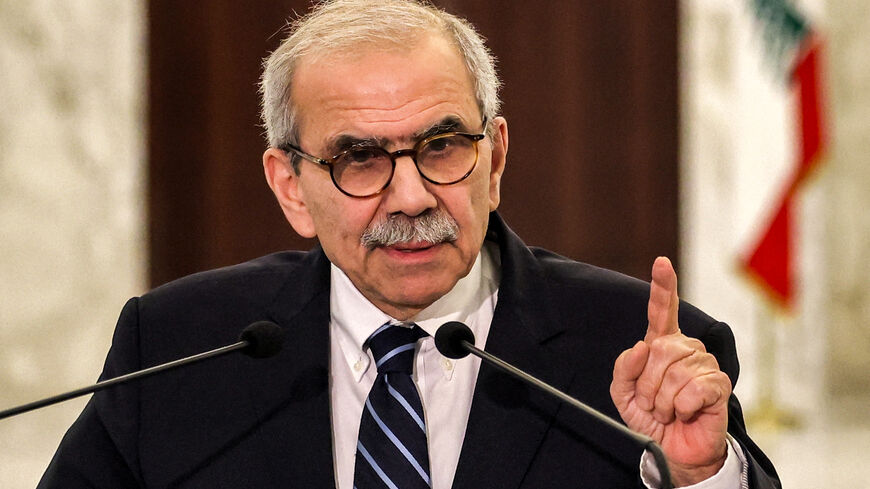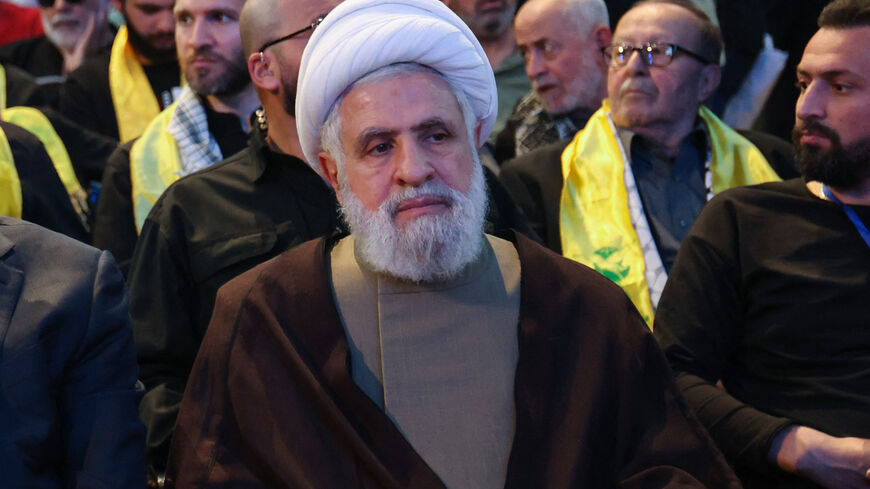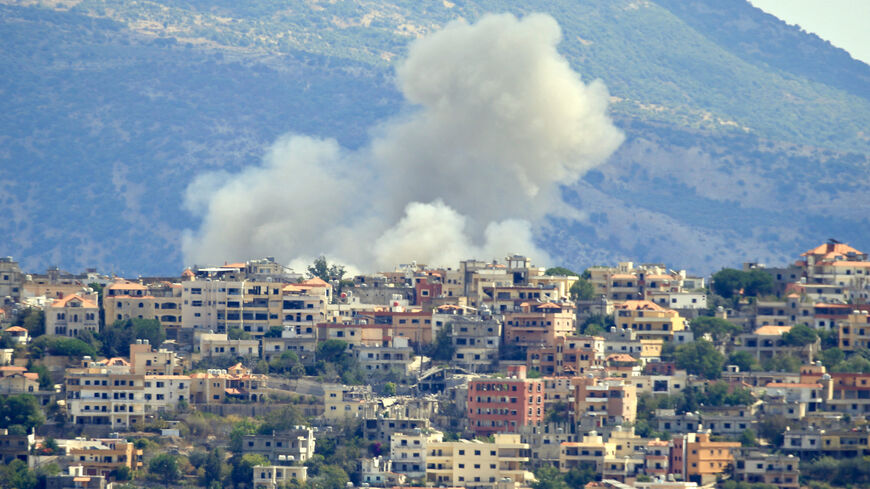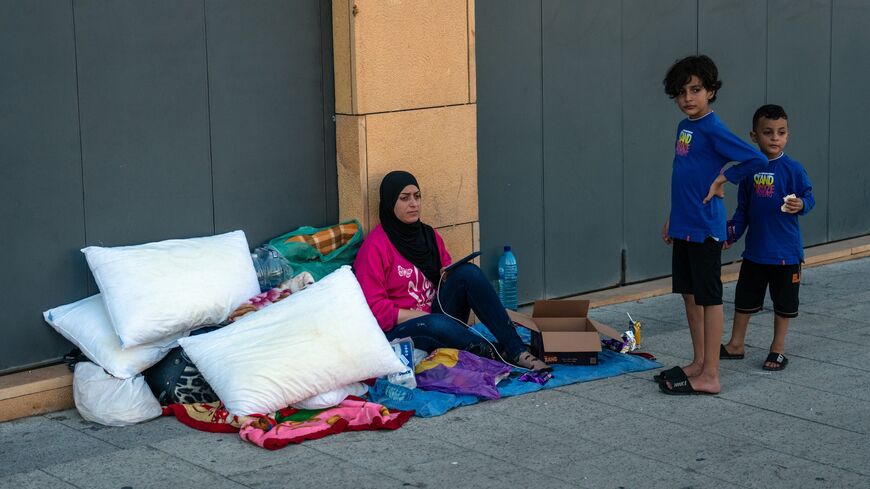Hezbollah’s new leader says group to fight 'for months' as US proposes 60-day Lebanon cease-fire
Naim Qassem’s speech coincides with escalating Israeli airstrikes across Lebanon, as the US scrambles to secure a cease-fire deal.
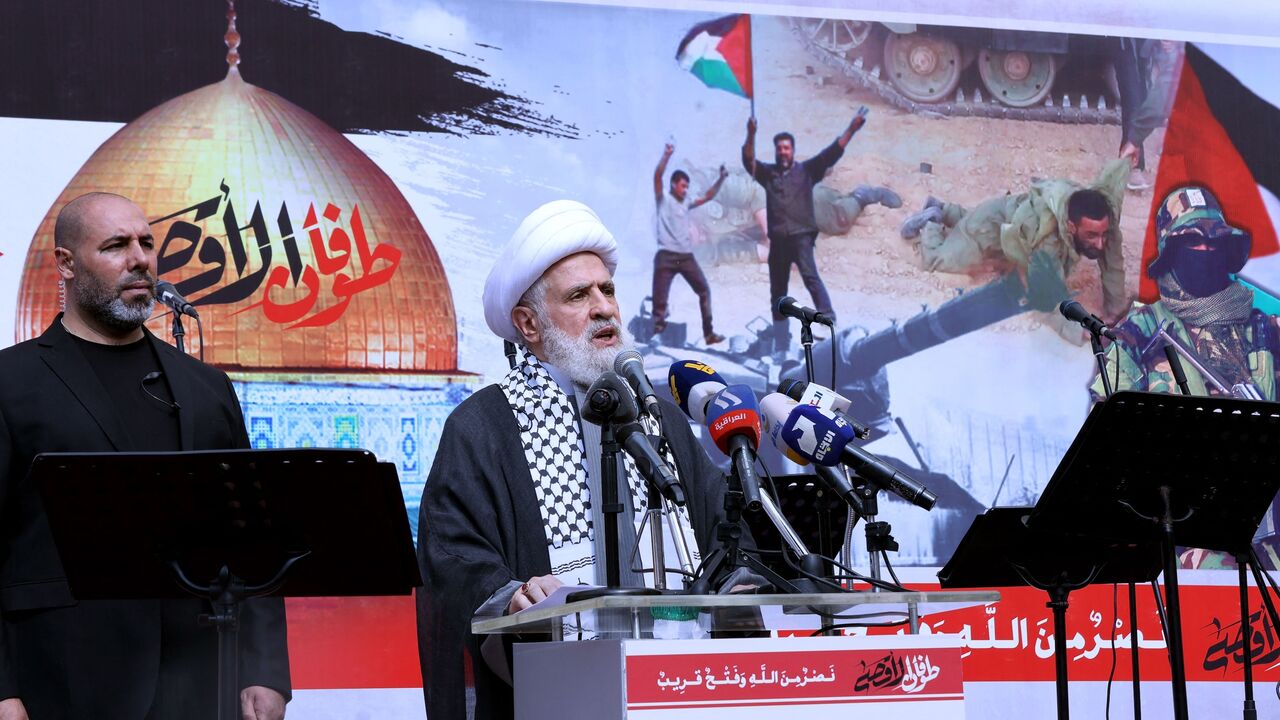
BEIRUT — In his first speech since taking over Hezbollah’s leadership, the group’s new secretary-general, Naim Qassem, vowed Wednesday to continue the war against Israel, just as Israeli warplanes conducted a series of airstrikes in the eastern city of Baalbek and Tyre in the south.
In his speech, Qassem vowed that under his leadership, Hezbollah would "continue to implement the war plan that (his slain predecessor, Hassan Nasrallah) developed with the leadership of the resistance.”
Hezbollah and Israel have been engaged in heavy fighting since the Iran-backed group began firing rockets at northern Israel on Oct. 8, 2023, in support of Hamas in Gaza, which carried out its cross-border assault on southern Israel the day before.
Qassem, however, denied that his group provoked the war in Lebanon, saying that Israel has been attacking Lebanon since 1978, even before the foundation of Hezbollah in 1982.
“Israel does not need a pretext (to launch a war). It is better for us to have a resistance than to wait for Israel to attack us and surprise us,” he said.
The new leader, who heads Iran's most powerful regional proxy force, also stressed that the group does not fight anyone’s battles.
“We do not fight on behalf of anyone. We only fight to protect Lebanon, liberate our land and in solidarity with Gaza,” he said. “[Iran] backs our project and wants nothing in return."
“Hezbollah will emerge stronger and victorious,” Qassem vowed, despite “the heavy blows” it incurred, referring to Nasrallah’s killing and the Sept. 17 pager attack that saw the detonation of thousands of pagers used by Hezbollah members, an operation widely thought to have been carried out by Israel's Mossad.
He said Hezbollah managed to recover and regroup following these “blows.”
“We can continue fighting for days, weeks and months,” he vowed.
Addressing Israel directly, Qassem said, “Leave our land to reduce your losses. If you remain, you will pay the price.”
The Israeli army announced on Sept. 30 the start of a limited ground invasion in southern Lebanon to destroy Hezbollah infrastructure.
Commenting on the current cease-fire efforts, Qassem said that Hezbollah would accept a truce under its own terms when Israel stops its “aggression” against Lebanon.
Israel 'eliminates' Hezbollah commanders
At the start of his televised speech, Qassem expressed his appreciation for the leadership of Hezbollah and the Shura Council for choosing him to carry this “heavy responsibility.”
Hezbollah’s Shura Council, tasked with supervising the group’s strategies and policies, elected Qassem as the group’s new secretary-general on Tuesday, more than a month after his predecessor, Nasrallah, who had led Hezbollah for more than three decades, was killed in a massive Israeli strike in Dahiyeh in the southern suburbs of Beirut on Sept. 27.
Israel has killed several Hezbollah commanders during its ongoing offensive in Lebanon since October 2023.
On Wednesday, the Israeli military said it “eliminated” the deputy commander of Hezbollah’s elite Radwan Unit, Mustafa Ahmad Shahadi, in an airstrike in the southern city of Nabatieh.
The Israeli military said in a statement that Shahadi planned “numerous terrorist attacks against Israel and oversaw attacks against [Israeli] soldiers in southern Lebanon.”
On Sept. 20, Israeli airstrikes in Dahiyeh killed the head of the Radwan Unit, Ibrahim Akil, along with 15 other commanders, according to the Israeli military.
The Israeli military estimates that the Radwan Unit includes thousands of fighters deployed in southern Lebanon on the border with Israel and planned to invade northern Israel.
Israel has expanded its airstrikes across Lebanon since September, repeatedly bombarding the south, Dahiyeh and the eastern Bekaa region — all known Hezbollah strongholds in the country — but also striking other areas including in the Keserwan and Jbeil districts as well as in the North governorate.
On Wednesday, heavy airstrikes struck Baalbek and Tyre, both of which are home to ancient Roman ruins. Earlier in the day, thousands of people fled Baalbek heading toward the town of Arsal near the border with Syria, after the Israeli military ordered residents to evacuate the city ahead of strikes targeting “Hezbollah interests.”
Several hours after issuing evacuation orders for Baalbek and its surrounding areas, #Israel began bombing the region heavily. #بعلبك #لبنان #إسرائيل pic.twitter.com/5aQZfZgLvL
— Nicholas Frakes | نيكولاس فريكس (@nicfrakesjourno) October 30, 2024
The evacuation order covered most of the city of Baalbek, which is a designated UNESCO World Heritage site, including the area near the 3,000-year-old famed Roman ruins in the city.
Baalbek Mayor Mustafa al-Shall told the local Al-Jadeed television network on Wednesday that about 100,000 people had fled the city.
Truce efforts ongoing
Washington, which is leading efforts to end the hostilities in Lebanon, is reportedly working on a new proposal that includes a 60-day truce.
Two sources with knowledge of the talks told Reuters on Wednesday that the US mediators would finalize the full implementation of UN Resolution 1701 — which ended the 2006 Israel-Hezbollah war — during the 60-day truce between Israel and Hezbollah.
US special envoy Amos Hochstein was in Lebanon last week for talks on a formula that would put a stop to the war in Lebanon. According to a report from the Hezbollah-aligned Al Akhbar daily, Hochstein’s formula included several amendments to Resolution 1701, including expanding the geographical scope of UNIFIL, the UN peacekeeping forces.
Hochstein, along with the White House's top Middle East adviser, Brett McGurk, are expected to travel to Israel on Thursday in a bid to secure a cease-fire deal, according to Axios.

